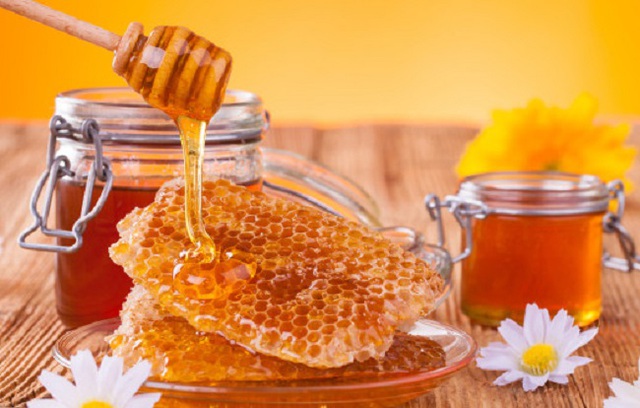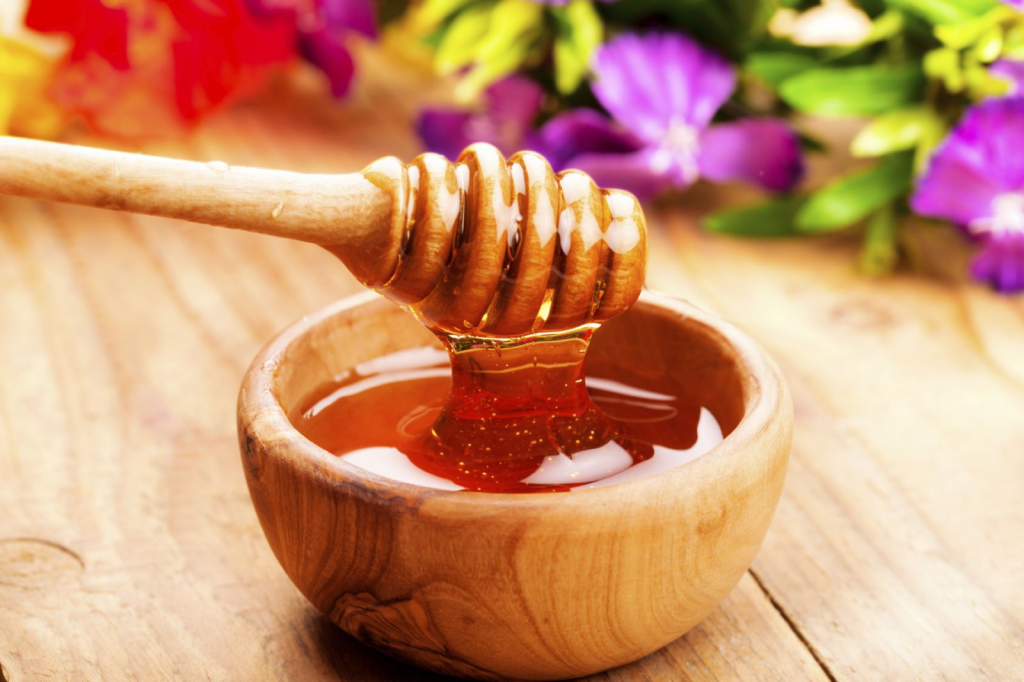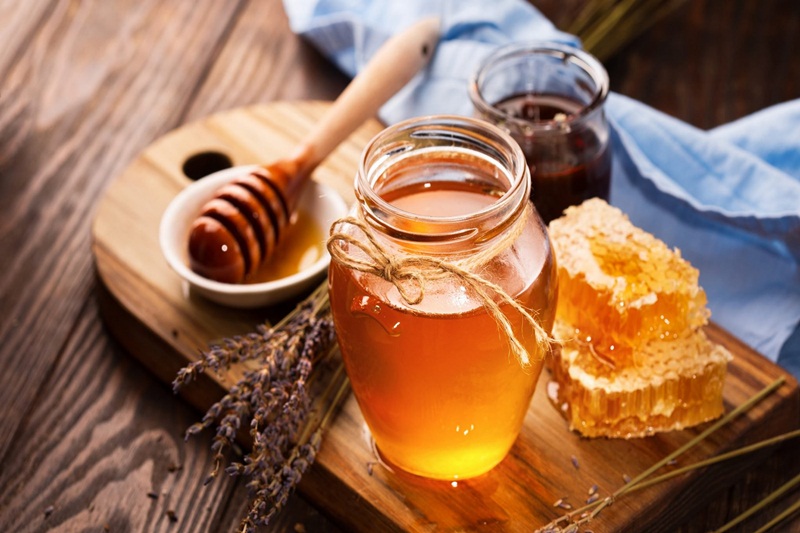Honey is a liquid made from nectar by bees, there are about 320 types of honey that differ in taste, color, smell. The main component of honey is sugar, a mixture of amino acids, vitamins and minerals, antioxidants, iron, zinc, etc.
Table of Contents
1. When do bees know how to get honey?
Honey is juicy when spread on slices of toast or brewed in tea, but honey is much more valuable than its sweetening function.
First, honey is a viscous liquid with a predominance of sugar, which is used by bees to feed the body. However, it also contains many enzymes, vitamins, minerals, and other organic molecules, making each type of honey unique and bringing a host of health benefits to bees.

Many insects can make honey such as bumblebees, bees that do not sting, even wasps but only honey bees make enough honey to store. This ability is not easy to acquire; It must go through millions of years of evolution. Honeybees split from wasps about 120 million years ago, at the height of the evolution and spread of flowering herbaceous plants. This diversity of grass flowers along with changes in bee behavior when feeding bee larvae with pollen instead of insects spurred the evolution of the approximately 20,000 species of bees known today.

2. Nutritional composition of honey
- Carbohydrates: Honey’s energy comes from carbohydrates. Honey is originally formed from the sugars fructose, glucose, sucrose and water, plus small amounts of protein and lipids. Fructose accounts for a higher proportion than glucose, while sucrose accounts for only a very small amount. The glycemic index (GI) of honey ranges from 45 to 64 and depends on each type of honey.
- Fats (Lipids): Honey does not contain lipids. However, some foods served with honey such as ice cream, bread, yogurt contain a fat component.
- Protein: Honey contains only a small amount of protein and this protein does not contribute to the body’s daily protein needs.
- Micronutrients: Honey contains trace elements such as B vitamins, calcium, iron, zinc, animal, etc. However, you will not get significant amounts of vitamins and minerals when using honey because the amount of honey consumed daily is very small.
3. What are the benefits of honey?
- Honey for burns: Honey has anti-inflammatory, disinfecting effects, therefore it is used as a home remedy for burns. In addition, the benefit of honey in the treatment of burns is to shorten the recovery time of the skin, not leaving many scars. When you have a burn, you can apply honey directly to the burn and then bandage it, do it 2-3 times a day until the wound is dry and on the young skin.
- Honey relieves cough
- Prevent cancer: The benefits of drinking honey stop not only in its ability to reduce cough, soothe throat, cure burns, enhance memory, etc., but also help prevent the generation and spread of cancer cells. This is because honey contains many antioxidants.
- Enhance memory: Honey has the effect of enhancing memory, improving short-term and long-term memory. In addition, honey is useful against anxiety, stress. The calcium component in honey slows down the oxidation of brain cells, strengthens memory.
- Supports digestion: The benefit of drinking honey every morning for the gastrointestinal tract is that it protects the intestines, which aids in relieving intestinal symptoms. In pure honey contains beneficial prebiotics, which are food for intestinal bacteria. Honey prevents the adhesion of bacteria on intestinal cells, which reduces the risk of infection.
- Antibacterial and antifungal honey: Honey has a low pH and contains hydrogen peroxide, glucose oxidase, which should be considered a natural antibiotic. When injured, it is possible to apply honey directly to scratches, skin infections that will help fight infection and aid in rapid wound healing.
- Soothes hemorrhoids: People with hemorrhoids often suffer from painful sensations, itching, anal bleeding. In addition to following the treatment regimen, the patient can use a mixture of olive oil and honey to apply to the damaged area. This mixture has the effect of reducing bleeding, pain, itching, making the patient feel more pleasant.
- Assists in the treatment of psoriasis: Psoriasis causes redness, itching, sores, etc. on the skin. Patients are usually prescribed skin creams containing corticosteroids or vitamin D. The benefits of honey in psoriasis are to soothe redness, itching, damage on the skin.

4. Proper storage of honey
- Honey should be stored in tightly closed bottles, jars, protected from light and high temperatures, it should not be stored in the refrigerator. After a period of storage, honey may crystallize. Before use, it is recommended to warm the honey so that the crystals melt.
- It is not recommended to tighten the lids of bottles or jars too tightly, as this will create gas and bubbling.
- Keep honey away from other foods such as onions, garlic, meat, fish, etc., because honey is easy to catch odors.

If you are interested, please contact me, good price, high quality.
Email: info@vdelta.com.vn
Whatsapp: +84364772308
Thank you!
Please visit my website to read more blogs






SEO Eficiente
This blog is a true gem in the vastness of the internet. Thank you for sharing your precious ideas!